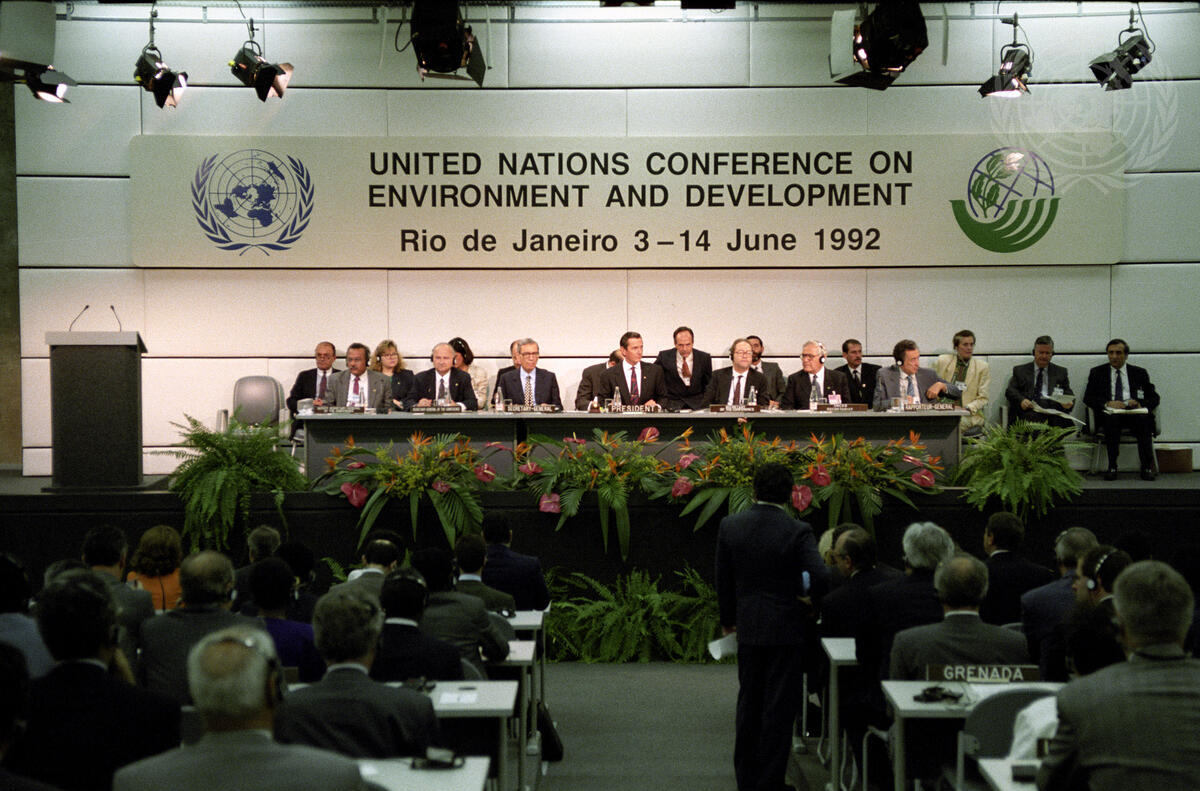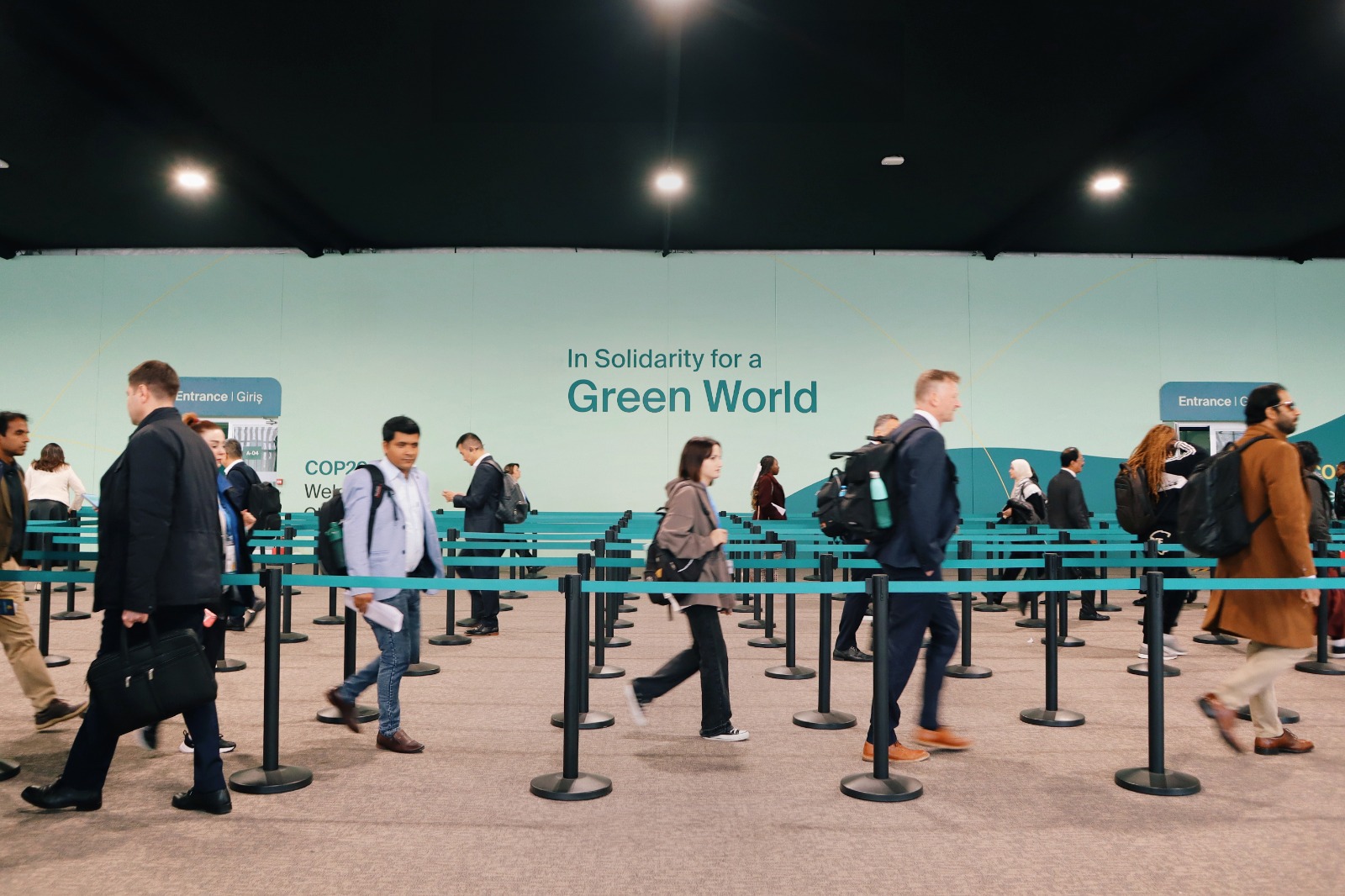Belém’s Climate Paradox: Road for COP30 Pierces Through the Heart of Amazon

The 1992 Earth Summit in Rio de Janeiro, Brazil gave birth to the Rio Conventions, which refer to the three landmark international agreements, including the United Nations Framework Convention on Climate Change.
21st March 2025 – Brazil is building a four-lane highway in the Amazon rainforest, a construction that started years ago before the country was selected as the official host country for the 30th Conference of the Parties (COP30) of the United Nations Framework Convention on Climate Change (UNFCCC) this November. The highway, which will cut through tens of thousands of acres of protected rainforest, will be used to accommodate over 50,000 COP30 attendees, including world leaders and policymakers, in Belém.
It’s a situation that undermines two (2) of the main themes of COP30 on preserving forests and biodiversity, and climate justice and the social impacts of climate change, posing profound ethical dilemmas on genuine sustainability commitments.
The highway, called the Avenida Liberdade, not only impinges on indigenous rights and local livelihoods, but also sets a dangerous precedent for further encroachments and exploitation. It disrupts essential wildlife corridors, fragmenting habitats and endangering species that rely on the forest’s vast and extensive biodiversity and ecosystems.
The looming climate paradox

The Amazon rainforest, often hailed as the “lungs of the Earth,” plays a crucial role in carbon sequestration and maintaining good air quality.
The Brazilian Government has framed COP30 as an opportunity to showcase the Amazon and its pivotal role in global climate discussions. Yet, the voices of those living in the Amazon are conspicuously absent from this narrative.
Reminiscent of past actions in 2022, a stretch of the rainforest was once cleared for trans-Amazonian highway in Humaitá. It is estimated that 17% of the forest is already deforested, but even with the remaining coverage, it is able to store more than 150 billion metric tons of carbon.
“Our goal is to achieve zero deforestation in the Amazon and zero emission of greenhouse gases in the electricity matrix,” said Brazilian President Luiz Inácio Lula da Silva in his inaugural speech in 2023. On his first day, he issued six decrees that supported the protection of Amazon, including the cancellation of mining on indigenous and protected lands and the resumption of the Amazon Fund to curtail deforestation. Ahead of COP30, Brazil is also pushing for the Tropical Forests Forever Facility as a funding mechanism for nations for every hectare of forest that they protect or maintain.
While Lula’s policies were greatly celebrated by the environmental enthusiasts, incidents like this greatly cudgel the faith in the leaders who have come into power vowing to protect the environment.
The global community now faces the troubling reality of a decision to cut through the world’s largest carbon sink—the Amazon rainforest—for roads that will be used by climate delegates for COP30.
Rewriting the COP process
In November 2024, leading climate figures, such as Prof. Dr. Johan Rockström, Sandrine Dixson-Declève, Mary Robinson, and Ban Ki-moon issued an open letter to reform the COP processes, emphasizing the critical need to move beyond endless negotiations and prioritize the swift implementation of global climate commitments.
It becomes an imperative to reassess the vested interest and climate integrity of host nations, avoiding wrong precedent for the COP negotiations process. The construction of the Avenida Liberdade highway stands as a cautionary tale, a vivid example of the pitfalls of prioritizing infrastructure over ecological integrity.
Deforesting the Amazon brings into question the credibility of the COP process, a major platform wherein our countries must fight for justice in our communities. It is a glimpse into the flaw of these conferences: it just brings further the agenda for so-called “development” without genuine consideration of people and nature.
Approach to climate negotiations must be renewed with a commitment to sustainability, past rhetoric—placing the needs and rights of the most vulnerable at the forefront of every global discussion.
Belém to Baku Roadmap

All eyes were on Baku, Azerbaijan in November 2024 at the onset of COP29—gathering world leaders, key stakeholders, civil society organizations, and advocates to negotiate on global climate and finance policies that will shape up a better reality for all.
With wounds still fresh from the unmet promises at COP29, the world needs not another hollow declaration of progress, but a resolute commitment to tangible climate action. Besides fancy highways, Brazil must focus on paving a progressive roadmap that enables climate vulnerable nations to achieve climate resilience and prosperity.
COP30 should be a gathering of world leaders and policymakers that does more in saving the planet than saving face. Host nations should avoid setting the wrong precedent for the COP negotiations process and should enable a climate that upholds the spirit of global cooperation and solidarity.
If COP30 is to leave a lasting impact, it must prioritize real climate solutions over symbolic gestures that come at the expense of the planet’s most crucial ecosystems. The real legacy of this summit should not be a highway through the rainforest, but a genuine commitment to protecting it and what it represents.
Let trees stand strong and the Amazon breathe and we let humanity endure and draw breath for many generations to come.
***
Disclaimer: The views and opinions expressed in this article are those of the authors and do not necessarily reflect the official policy or position of the institutions they represent.
CONTRIBUTORS
This article has been developed by CVF Youth Fellows.
Yakubu Adam, Policy, Programs, and Projects Coordinator, Institute For Energy Security, Ghana
Mohammed Alyatari, Executive Director, National Forum Environment and Sustainable Development, Yemen
Sara Badran, Researcher – Nature Conservation Center, American University of Beirut, Lebanon
Anita Barnie, Forest Range Manager, Forestry Commission, Accra, Ghana
Mia Niña Maria de la Paz Catipon, Student, Ateneo de Manila University, Philippines
Hala Al-Hamawi, PhD Candidate, Social and Political Sciences Department, Nottingham Trent University
Tarcizio Tobias Kalaundi, Programme Support Officer, Resilience and Livelihoods — Trocaire, Malawi
Ramsha Malik, Assistant Director (Capacity Building), Ministry of Climate Change and Environmental Coordination, Pakistan
Mary Isabella Aoko Okoth, GIS Analyst, Profound Research Institute, Kenya
Fe Esperanza Trampe, Legal Officer, Environmental Legal Assistance Center, Inc., Philippines
Sajini Wickramasinghe, Attorney-at-Law, Supreme Court of Sri Lanka, Legal Analyst – Verité Research (Pvt) Ltd.
